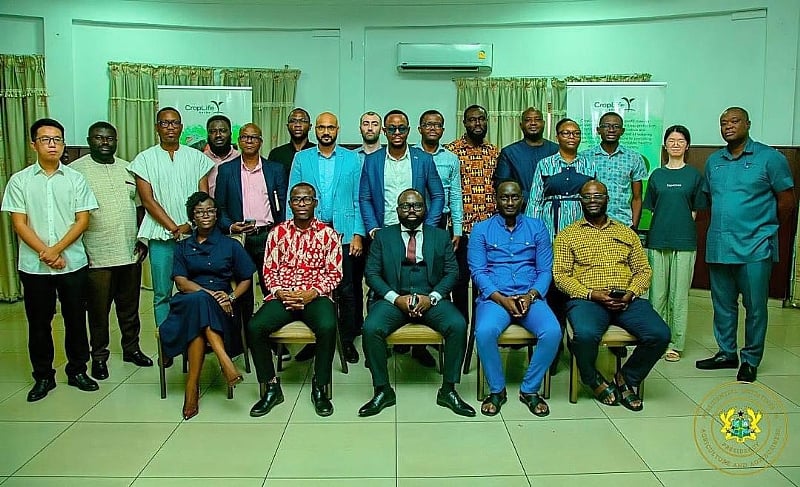CropLife Ghana, the apex body representing the interests of manufacturers, importers, and distributors of vital agricultural inputs, convened its 2025 Annual General Meeting (AGM) for CEOs and Managing Directors on April 29th at the Mendsvic Grande Hotel in Accra. This strategic gathering brought together the leadership of all 23 member companies to deliberate on key initiatives designed to bolster sustainable agriculture in Ghana. As an affiliate of both CropLife Africa Middle East (CLAME) and CropLife International (CLI), the association reiterated its unwavering commitment to advancing modern farming practices through a multifaceted approach encompassing innovation, research, and responsible input management. This commitment underlines CropLife Ghana’s recognition of the critical role it plays in ensuring food security and supporting the growth of the agricultural sector in the country. The AGM served as a platform for aligning strategies and reinforcing the collective responsibility of the industry towards sustainable and productive agriculture.
A central theme of the AGM was product life cycle stewardship, a concept that emphasizes the meticulous management of agricultural inputs throughout their entire lifespan, from development and production to usage and disposal. This approach aims to ensure farmers have access to high-quality, affordable inputs while simultaneously minimizing potential risks to human health and the environment. The emphasis on product life cycle stewardship reflects CropLife Ghana’s commitment to responsible and ethical practices within the agricultural input sector. By prioritizing this concept, the association underscores its dedication to balancing agricultural productivity with environmental protection and human well-being. This approach ensures the long-term sustainability of agricultural practices by mitigating negative externalities and promoting responsible resource management.
Delegates at the AGM also underscored the importance of stringent regulatory compliance and rigorous quality control measures throughout the agricultural input value chain. They emphasized the critical need for stronger collaboration with key governmental institutions, including the Environmental Protection Authority (EPA), the Plant Protection and Regulatory Services Department of the Ministry of Food and Agriculture (PPRSD-MoFA), and the Ghana Standards Authority (GSA). This collaborative approach is essential for establishing and enforcing industry standards, ensuring the safe and effective use of agricultural inputs, and fostering trust among stakeholders. By working closely with regulatory bodies, CropLife Ghana aims to create a transparent and accountable environment that promotes responsible agricultural practices and safeguards both human and environmental health.
The AGM was graced by the presence of Dr. Peter Boamah Otokunor, Director for Presidential Initiatives in Agriculture and Agribusiness, who delivered the keynote address on behalf of H.E. President John Dramani Mahama. Dr. Otokunor articulated the government’s vision for agricultural transformation as encapsulated in the Agriculture for Economic Transformation Agenda (AETA). This agenda prioritizes the modernization of the agricultural sector, the creation of employment opportunities, and the generation of wealth through agricultural activities. The AETA represents a comprehensive roadmap for leveraging agriculture as a key driver of economic growth and development in Ghana. By focusing on these key areas, the government aims to enhance food security, improve livelihoods, and stimulate economic activity throughout the agricultural value chain.
Dr. Otokunor’s address highlighted the government’s recognition of the crucial role of agriculture in achieving national development goals. The AETA’s emphasis on modernization signifies the government’s commitment to adopting innovative technologies and best practices to improve efficiency and productivity across the agricultural sector. The focus on job creation recognizes the vast potential of agriculture to absorb labor and reduce unemployment, particularly in rural areas. Furthermore, the emphasis on wealth generation underscores the importance of transforming agriculture into a profitable and sustainable enterprise that can contribute significantly to the national economy.
Dr. Otokunor also reiterated the government’s commitment to fostering a close working relationship with CropLife Ghana to facilitate transformative growth in the agricultural sector. This partnership reflects the government’s understanding of the importance of engaging with key stakeholders in the agricultural input industry to achieve shared goals. By collaborating with CropLife Ghana, the government aims to leverage the expertise and resources of the private sector to drive innovation, promote best practices, and ensure the responsible use of agricultural inputs. This collaborative approach is crucial for creating a conducive environment for sustainable agricultural development, ultimately contributing to food security, economic growth, and improved livelihoods for all Ghanaians.


